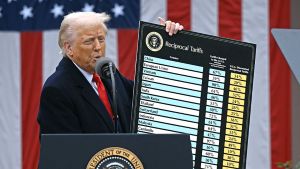
..
Economist names Bangladesh "Country of the Year" for controversial political upheaval, not for any development
On December 20, 2024, many media outlets in Bangladesh reported that The Economist named Bangladesh "Country of the Year" for 2024. This headline suggests that Bangladesh made significant progress in areas such as the economy, social issues, and politics.
-
While The Economist highlights Bangladesh's selection, it says the winner is not the richest, happiest, or most virtuous place.
-
It also underscores significant concerns, labelling the opposition party, the BNP, as highly corrupt and noting the rise of Islamic extremism as a threat to the nation’s future.
-
It characterized Mr. Yunus's government as lacking a legal foundation and being on shaky ground.
The London-based international news magazine, which positions itself in the "radical centre," selected Bangladesh not for its achievements in development, but rather due to a "meticulously planned" conspiracy that led to the overthrow of an elected government.
In its annual report, The Economist placed Bangladesh at the top of a table ranking countries experiencing widespread civil unrest and institutional decay. As noted in the report:
"Each December, The Economist picks a country of the year. The winner is not the richest, happiest, or most virtuous place."
The publication's rationale for selecting Bangladesh is vaguely defined as it indicates that the country showed improvement over the past 12 months, linked to a student-led movement that paved the way for an unelected regime to replace an elected one.
Ironically, while The Economist highlights Bangladesh's selection, it underscores significant concerns, labelling the opposition party, the BNP, as highly corrupt and noting the rise of Islamic extremism as a threat to the nation’s future.
The report conveyed that following the regime change in August, Bangladesh is on a path of increasing violence:
"Bangladesh has a history of vengeful violence when power changes hands. The main opposition party, the BNP, is venal. Islamic extremism is a threat."
In addition, The Economist provided important recommendations, indicating that Bangladesh must address these issues to foster development and safeguard its future in a volatile geopolitical landscape, which has worsened since Professor Yunus assumed power. Despite some in the Yunus-led interim government viewing India as a confrontational neighbour, The Economist strongly recommended repairing ties with India by 2025.
Moreover, the need for a firm decision to hold the next national election is deemed urgent. The publication emphasized that the judiciary must be independent, fair, and impartial, ensuring space for all opposition parties to participate in a free and fair electoral process.
The Economist acknowledged that implementing these recommendations would not be an easy task for the current interim government.
In a separate editorial in November 2024, the magazine highlighted the significant challenges facing Bangladesh and noted that how the country navigates these issues will impact not just its 173 million citizens, but also neighbouring countries, amid the ongoing rivalry between India, China, and the West. It characterized Mr. Yunus's government as lacking a legal foundation and being on shaky ground.
Given The Economist's own analysis, it is evident that being recognized for a so-called revolution, based on the current circumstances, does not bode well for Bangladesh or its people. The Economist has previously ranked countries for similar reasons, where developmental progress was not considered a criterion. Countries facing turmoil, like Bangladesh, have topped this list before, including civil war-torn Colombia, Ukraine, and Greece during its financial crisis.



